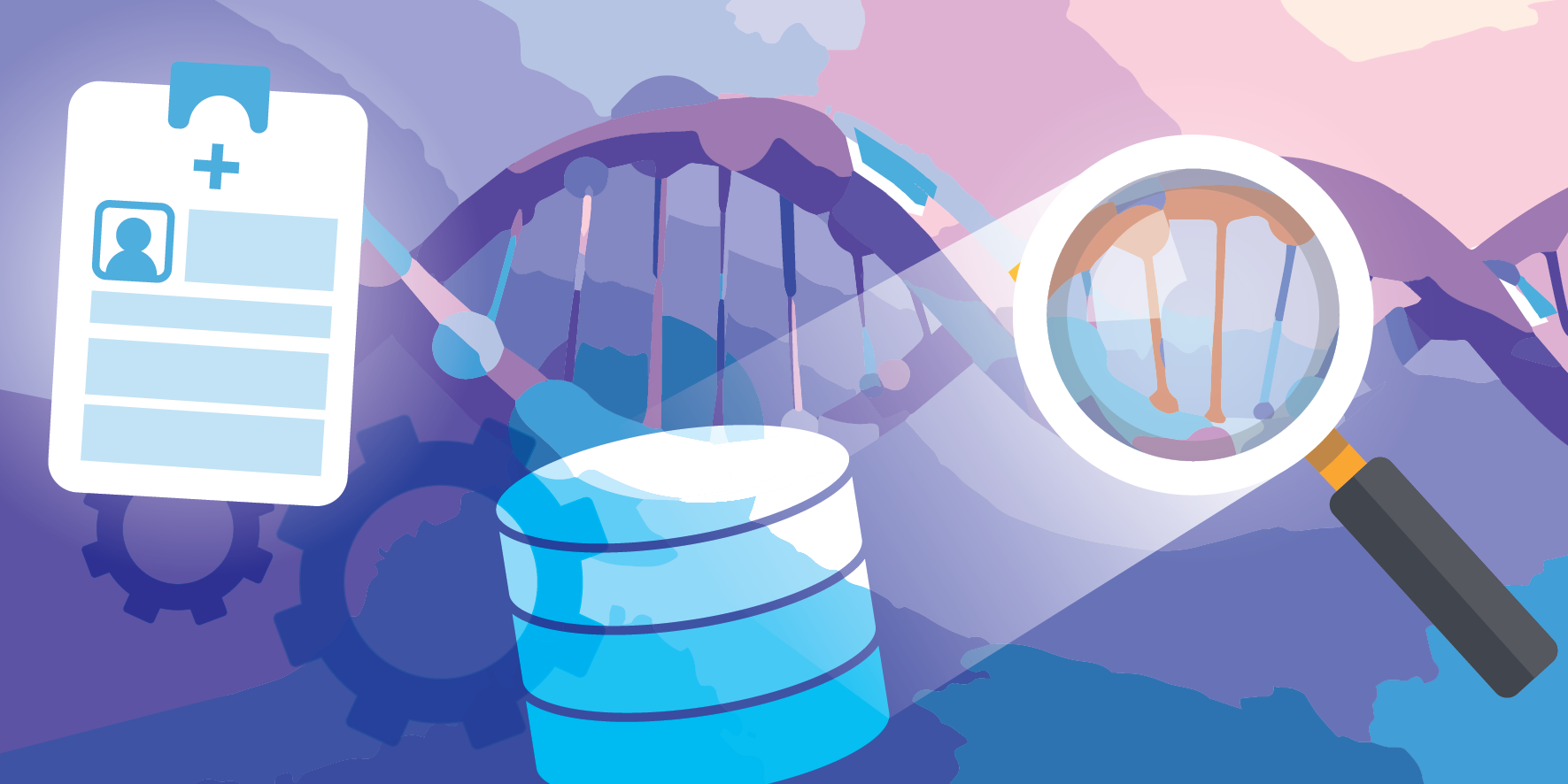About us
Learn how GA4GH helps expand responsible genomic data use to benefit human health.
Learn how GA4GH helps expand responsible genomic data use to benefit human health.
Our Strategic Road Map defines strategies, standards, and policy frameworks to support responsible global use of genomic and related health data.
Discover how a meeting of 50 leaders in genomics and medicine led to an alliance uniting more than 5,000 individuals and organisations to benefit human health.
GA4GH Inc. is a not-for-profit organisation that supports the global GA4GH community.
The GA4GH Council, consisting of the Executive Committee, Strategic Leadership Committee, and Product Steering Committee, guides our collaborative, globe-spanning alliance.
The Funders Forum brings together organisations that offer both financial support and strategic guidance.
The EDI Advisory Group responds to issues raised in the GA4GH community, finding equitable, inclusive ways to build products that benefit diverse groups.
Distributed across a number of Host Institutions, our staff team supports the mission and operations of GA4GH.
Curious who we are? Meet the people and organisations across six continents who make up GA4GH.
More than 500 organisations connected to genomics — in healthcare, research, patient advocacy, industry, and beyond — have signed onto the mission and vision of GA4GH as Organisational Members.
These core Organisational Members are genomic data initiatives that have committed resources to guide GA4GH work and pilot our products.
This subset of Organisational Members whose networks or infrastructure align with GA4GH priorities has made a long-term commitment to engaging with our community.
Local and national organisations assign experts to spend at least 30% of their time building GA4GH products.
Anyone working in genomics and related fields is invited to participate in our inclusive community by creating and using new products.
Wondering what GA4GH does? Learn how we find and overcome challenges to expanding responsible genomic data use for the benefit of human health.
Study Groups define needs. Participants survey the landscape of the genomics and health community and determine whether GA4GH can help.
Work Streams create products. Community members join together to develop technical standards, policy frameworks, and policy tools that overcome hurdles to international genomic data use.
GIF solves problems. Organisations in the forum pilot GA4GH products in real-world situations. Along the way, they troubleshoot products, suggest updates, and flag additional needs.
GIF Projects are community-led initiatives that put GA4GH products into practice in real-world scenarios.
The GIF AMA programme produces events and resources to address implementation questions and challenges.
NIF finds challenges and opportunities in genomics at a global scale. National programmes meet to share best practices, avoid incompatabilities, and help translate genomics into benefits for human health.
Communities of Interest find challenges and opportunities in areas such as rare disease, cancer, and infectious disease. Participants pinpoint real-world problems that would benefit from broad data use.
The Technical Alignment Subcommittee (TASC) supports harmonisation, interoperability, and technical alignment across GA4GH products.
Find out what’s happening with up to the minute meeting schedules for the GA4GH community.
See all our products — always free and open-source. Do you work on cloud genomics, data discovery, user access, data security or regulatory policy and ethics? Need to represent genomic, phenotypic, or clinical data? We’ve got a solution for you.
All GA4GH standards, frameworks, and tools follow the Product Development and Approval Process before being officially adopted.
Learn how other organisations have implemented GA4GH products to solve real-world problems.
Help us transform the future of genomic data use! See how GA4GH can benefit you — whether you’re using our products, writing our standards, subscribing to a newsletter, or more.
Join our community! Explore opportunities to participate in or lead GA4GH activities.
Help create new global standards and frameworks for responsible genomic data use.
Align your organisation with the GA4GH mission and vision.
Want to advance both your career and responsible genomic data sharing at the same time? See our open leadership opportunities.
Join our international team and help us advance genomic data use for the benefit of human health.
Discover current opportunities to engage with GA4GH. Share feedback on our products, apply for volunteer leadership roles, and contribute your expertise to shape the future of genomic data sharing.
Solve real problems by aligning your organisation with the world’s genomics standards. We offer software dvelopers both customisable and out-of-the-box solutions to help you get started.
Learn more about upcoming GA4GH events. See reports and recordings from our past events.
Speak directly to the global genomics and health community while supporting GA4GH strategy.
Be the first to hear about the latest GA4GH products, upcoming meetings, new initiatives, and more.
Questions? We would love to hear from you.
Read news, stories, and insights from the forefront of genomic and clinical data use.
Attend an upcoming GA4GH event, or view meeting reports from past events.
See new projects, updates, and calls for support from the Work Streams.
Read academic papers coauthored by GA4GH contributors.
Listen to our podcast OmicsXchange, featuring discussions from leaders in the world of genomics, health, and data sharing.
Check out our videos, then subscribe to our YouTube channel for more content.
View the latest GA4GH updates, Genomics and Health News, Implementation Notes, GDPR Briefs, and more.
Discover all things GA4GH: explore our news, events, videos, podcasts, announcements, publications, and newsletters.
6 Jan 2022
Genomic science relies on the individuals who choose to donate their data. These can include participants of research studies and patients who may be directly impacted by research findings. As healthcare systems increasingly utilize genomics for patient care, it is important that the benefits of genomics are global, fair, and just; and the way that genomics activities engage participants, patients, the public, and other stakeholders are core to this aim.

Genomic science relies on the individuals who choose to donate their data. These can include participants of research studies and patients who may be directly impacted by research findings. As healthcare systems increasingly utilize genomics for patient care, it is important that the benefits of genomics are global, fair, and just; and the way that genomics activities engage participants, patients, the public, and other stakeholders are core to this aim.
“By bringing together multiple perspectives in genomics and health research, we can ensure the outcomes of our work are valid, relevant and equitable,” said Madeleine Murtagh, Professor of Social Data Science at the University of Glasgow and one of the Project Leads of the Engagement Framework.
Recently approved by the GA4GH Steering Committee, the GA4GH Engagement Framework provides key considerations for engaging different stakeholders in genomics research, health implementation of genomics, and genomic data sharing. The GA4GH Regulatory and Ethics Work Stream collaboratively created this guidance with GA4GH Driver Projects, the Genomics in Health Implementation Forum (GHIF), and members of the Your DNA Your Say Initiative. The development team also prioritized the inclusion of diverse views from individuals with different lived experiences of genomics as patients, research participants, and members of the public. The team’s work has been presented in the preprint paper, “Engaged genomic science produces better and fairer outcomes: an engagement framework for engaging and involving participants, patients and publics in genomics research and healthcare implementation.”
“How we engage stakeholders is vital to our work in genomics,” said Mavis Machirori, Senior Researcher at the Ada Lovelace Institute and a Project Lead on the Engagement Framework. “When done successfully, effective inclusion and engagement practices can build trust, increase the value and quality of genomics, demonstrate the impact of diversity on research, and ensure that genomics research stays relevant.”
The Engagement Framework is built upon the deliberative reflection of the scope, purpose and strategies of engagement. The framework poses a series of questions that are designed to help those involved in genomics activities to appraise and evaluate their engagement strategies. The guidance is structured around four key themes: fairness, context, heterogeneity, and recognizing tensions and conflicts.-
“As a funder of genomics research, Wellcome strives for fairness, inclusivity and equity in the research we fund. This Engagement Framework will be an invaluable tool for us to ensure the work we support meets these important aims and leads to both stronger science and better outcomes for all,” said Audrey Duncanson, Senior Portfolio Manager within the Science division of the Wellcome Trust and a contributor to the Engagement Framework.
“Our development group included a wide range of stakeholder communities. Together, we hope genomics initiatives use this resource to reflect on the strengths and limitations of their engagement practices and decisions,” said Clara Gaff, Executive Director of Melbourne Genomics Health Alliance and a Project Lead of the Engagement Framework. “And through this process, determine whether their community engagement is achieving its intended purpose and impact.”
Future research could explore the use of the Engagement Framework in different contexts, evaluate the outcomes of different engagement models and types of structures that can support that effort.
“Ultimately, engaged genomic science produces better and fairer outcomes for all,” agreed the project leads.
